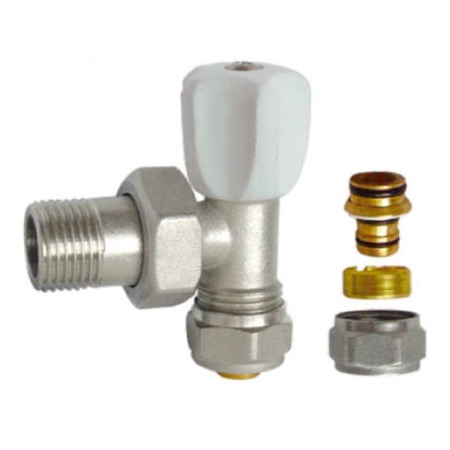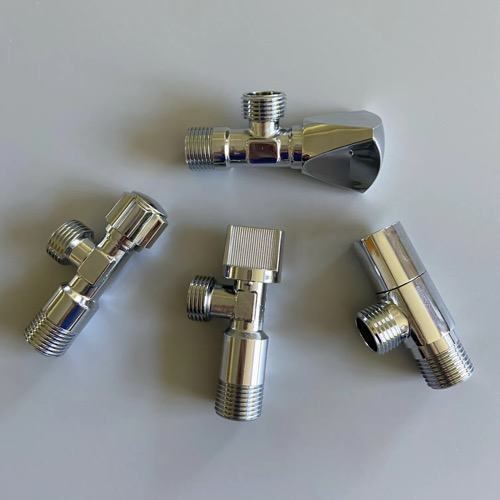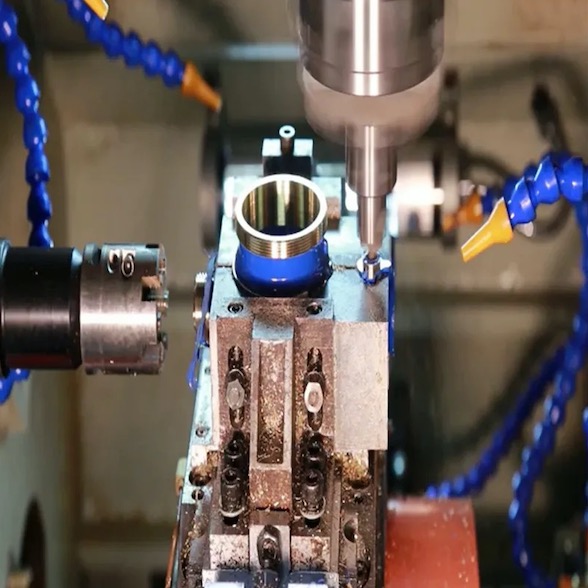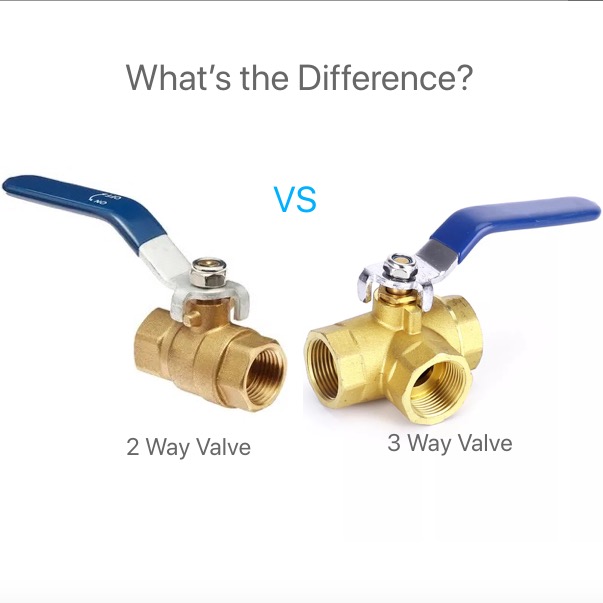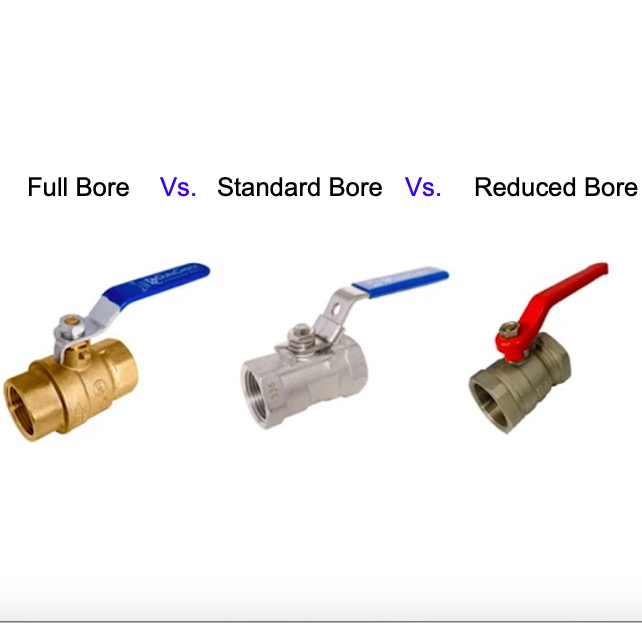When choosing the right valve for your plumbing or fluid control system, it's crucial to understand the difference between a brass stop valve and a brass gate valve. Both serve specific functions, but how do you know which one fits your needs?
Brass stop valves and brass gate valves are both essential components in plumbing and fluid systems1. However, they are designed for different applications. Brass stop valves are ideal for controlling flow in smaller pipes, while brass gate valves are better for large systems where full shut-off is necessary.
Before diving into when to use each valve type, let’s first understand their unique features and applications. This will help you make an informed decision for your plumbing needs.
What is a Brass Stop Valve?
A brass stop valve is a type of valve commonly used for controlling the flow of water in smaller pipelines. But what makes it different from other valves?
Brass stop valves are mainly used for on/off control, allowing easy isolation of fixtures or appliances. They are perfect for smaller residential plumbing systems, but can also handle limited throttling for water flow.
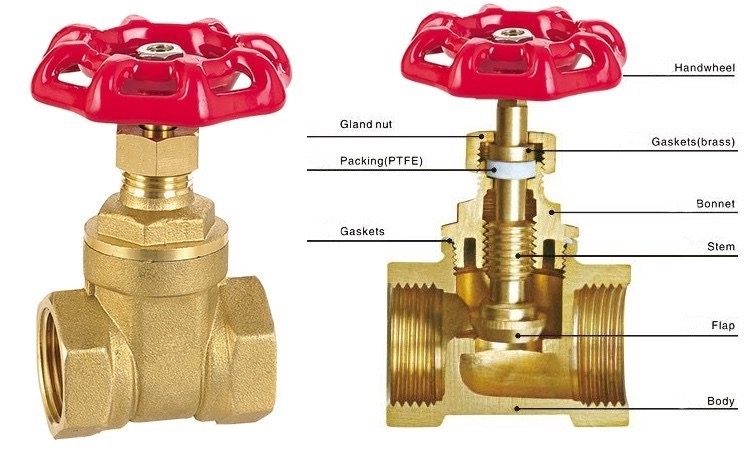
A brass stop valve is a straightforward valve designed primarily for shutting off water flow. It is mostly used in residential plumbing, where individual fixtures or appliances require isolation. For example, you may find them under sinks or toilets to allow for easy repair or maintenance without affecting the entire water system.
Advantages of Brass Stop Valves:
- Quick On/Off Action: Brass stop valves allow for fast and easy shut-off of water flow. This feature is perfect when you need to isolate a part of your plumbing system quickly for repairs or replacement.
- Compact Design: These valves are typically small, making them ideal for tight spaces. Their compact size doesn’t compromise their ability to control water flow effectively.
- Low Pressure Drop: When fully open, stop valves offer minimal resistance, allowing water to pass through without a significant pressure drop.
However, one limitation is their inability to regulate flow in a fine-tuned manner. While they can handle some throttling, they are not suitable for systems where precise flow control is required over extended periods.
In residential settings, stop valves are crucial for providing access points where you can cut off water to specific fixtures. They can also be used for maintenance purposes, allowing you to work on one fixture without shutting off the entire home’s water supply.
What is a Brass Gate Valve?
Brass gate valves are another type of valve, but they’re often used in much larger systems. So, what makes them the go-to option for industrial applications?
Brass gate valves are designed for larger pipelines where full isolation is required. Unlike stop valves, gate valves are either fully open or fully closed, providing a reliable solution for larger-scale systems.
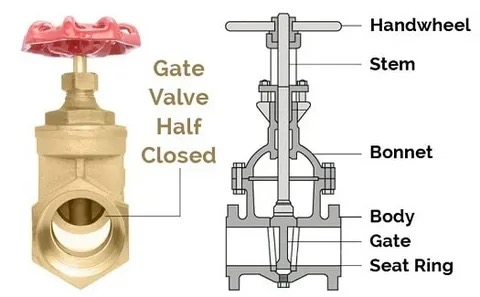
Brass Gate Valve structure
A brass gate valve operates differently from a stop valve. It is designed to either fully open or fully close a pipe, making it ideal for main shut-off valves. Unlike the brass stop valve, which can throttle the flow, a gate valve is strictly an on/off valve. Its primary purpose is to provide complete isolation or allow full flow through a pipeline.
Why Use Brass Gate Valves?
- Durability: Brass gate valves are built to withstand higher pressures and larger volumes of fluid, making them suitable for industrial, commercial, and municipal applications.
- Minimal Flow Resistance: When fully open, gate valves create very little resistance to fluid flow, making them ideal for high-flow conditions.
- Long Lifespan: Due to their robust design, brass gate valves tend to have a longer operational life. They are less likely to suffer wear and tear compared to valves that are frequently operated.
Gate valves are often installed in main water lines, irrigation systems, and industrial pipelines where large amounts of fluid are transported. They are perfect when you need a system that can be completely opened or closed without concern for regulating the flow in between.
What are the different types of brass valves?
Brass valves come in various types, each serving a different purpose in plumbing systems. But how do these valves compare to one another?
Beyond stop and gate valves, there are other types of brass valves, including ball valves, globe valves, and check valves. Each serves a unique function, depending on the system requirements.

brass ball valve sizes and pressure
Brass valves are commonly used in a variety of fluid systems, from residential plumbing to large industrial processes. Some of the other types of brass valves include:
Ball Valves
Ball valves use a rotating ball to control the flow of water. They are popular for their reliability and ease of use. When the valve is fully open, the ball allows water to flow through; when it is closed, the ball blocks the flow entirely.
Advantages:
- Quick and easy to operate.
- Low maintenance.
- Great for both large and small systems.
Globe Valves
Globe valves are used for throttling or regulating the flow of water. Unlike gate valves, which are meant to be fully open or fully closed, globe valves can fine-tune the flow, making them ideal for systems where precise control is needed.
Advantages:
- Excellent flow regulation.
- Ideal for controlling the flow rate in systems with varying pressure.
Check Valves
Check valves allow fluid to flow in only one direction. They are essential in systems where backflow prevention is needed. These valves automatically close when the flow direction reverses, preventing contaminants from flowing back into the system.
Advantages:
- Prevents backflow.
- Protects water quality and system integrity.
Which is better ball valve or gate valve for main line shut off?
When it comes to shutting off the main water supply line, you may be wondering whether a ball valve or a gate valve is the better option. Let’s break it down.
For a main line shut-off, a ball valve is often the better choice. Its quick on/off operation and durability make it ideal for this purpose, especially in systems where ease of use and reliability are key.
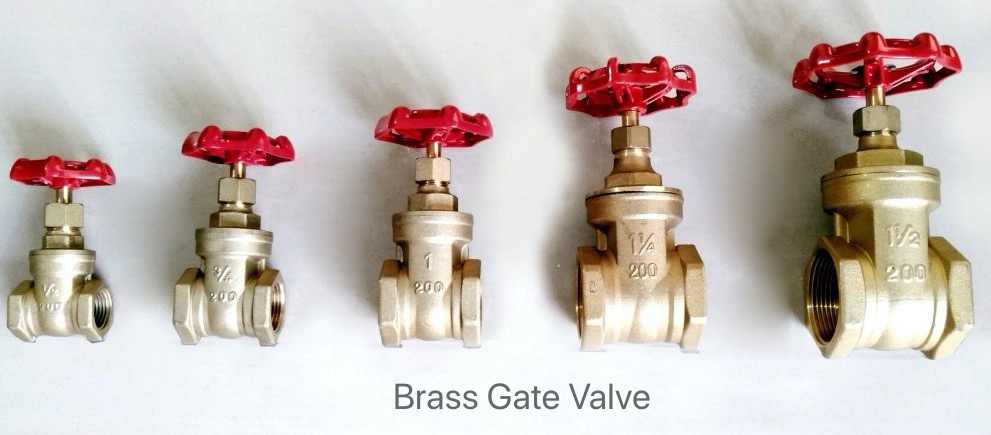
Brass gate valve 1/2"-2"
When choosing between a ball valve and a gate valve for the main line shut-off, several factors come into play. Here’s a breakdown:
Ball Valve for Main Shut-Off
Ball valves are ideal for main line shut-offs because they are fast and easy to operate. They can be fully opened or closed with a simple 90-degree turn, making them convenient for quick shut-off or restoration of water flow. Their design also ensures minimal pressure loss when open, which is beneficial for systems that need consistent water pressure.
Gate Valve for Main Shut-Off
Gate valves, on the other hand, are designed for larger systems that don’t require frequent operation. They are better suited for situations where you need to fully open or close the flow, but they require more effort to operate. Gate valves are less user-friendly for regular shut-off tasks and are typically used for more permanent or less frequently adjusted installations.
Key Differences:
| Feature | Brass Stop Valve | Brass Gate Valve |
|---|---|---|
| Function | On/off control, some throttling possible | Full flow control, primarily on/off |
| Size | Typically used for smaller pipes | Used for larger pipes and higher flows |
| Flow control | Can throttle flow, but not ideal for it | Designed for full open or fully closed operation |
| Common uses | Residential plumbing, fixtures, appliances | Industrial, commercial, main water lines |
| Operation | Quick on/off, can be operated frequently | Typically used for infrequent operation (open/close) |
| Pressure Drop | Low pressure drop when open | Low pressure drop when fully open |
Which One to Choose?
- Ball Valve: Best for quick and easy shut-off, especially in residential or smaller commercial systems.
- Gate Valve: Suitable for larger systems, where full isolation is necessary, but not ideal for regular operation.
Conclusion
Brass stop valves and brass gate valves each serve unique purposes in plumbing systems. Whether you need quick on/off control for smaller fixtures or full isolation for larger pipelines, understanding their differences will help you choose the right valve for your needs. Welcome to Contact Vpexco
-
Discover the essential components of plumbing and fluid systems to enhance your understanding of their operation. ↩




